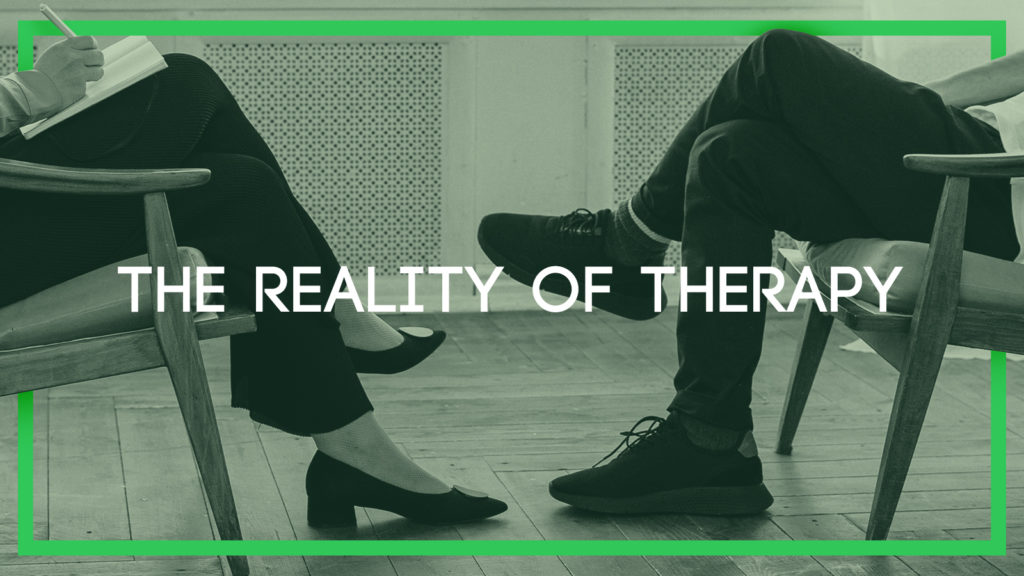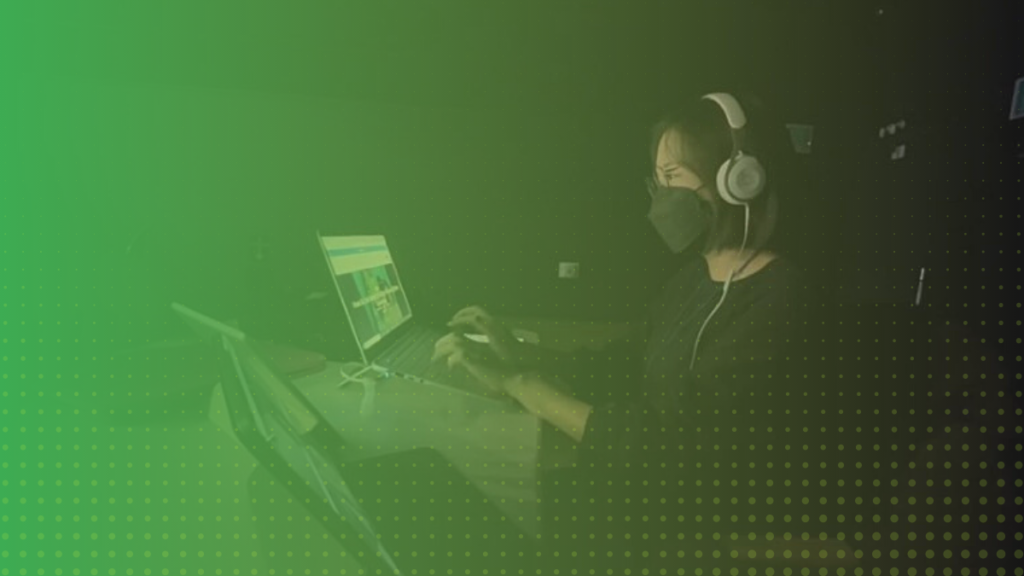By Diana | @parkenjoyer, Sarah | @sarahrobotke, and Taylor | @taylor_louisem
Warning: there are mentions of depression, suicide, abuse, sexual assault, and eating disorders in this article.
Starting therapy can be really challenging if you’ve never been before. There are questions including how to find a therapist, what type of therapy you should receive, and what it’s like. In honor of Mental Health Awareness Month, a few of us at EnVi wanted to share our experiences with it, in order to illustrate the reality of therapy and make the process less intimidating.
Diana’s Experience
TW: Depression, Suicide, Abuse
Therapy has been a pretty consistent thing throughout my life. I started going to speech and language therapy at the age of 3 and went for two years. This was to correct communication issues I had due to what my family and I thought was Expressive-Receptive Language Disorder.
I started having a hard time connecting and getting along with my peers in middle school, so my parents sent me to a small group with a licensed counselor when I was 12 years old. I stopped going after the fifth session when she told my parents she thought I had ADHD, following an incident involving me locking her out of her office for a few minutes. No one else who worked with me thought I had it, so my parents were furious at her assumption, considering she didn’t know me very well.
I started family counseling before I turned 14. My parents sent me because they wanted me to understand that it’s okay to ask for help and to set expectations about what counseling was like, but it didn’t do much because I felt like it was imposed on me at the time.
The main benefit of going to this therapist was that I ended up getting a diagnosis for my anxiety, depression, and ADHD. I felt frustrated because it felt like planning my suicide at the time was the only way my parents would take my concerns seriously. After dealing with emotional abuse from some of my high school teachers, pressure to succeed, and body image issues among other things, it became incredibly overwhelming and out of my control. I started medication for my ADHD and stopped after a few years when I felt it was no longer helping me.
One of the challenges I faced was being misdiagnosed. My therapist at the time saw my rejection of social cues as a challenge to authority. This led to me being misdiagnosed with Oppositional Defiant Disorder. It caused me to continue to question myself and have self-esteem issues. I don’t blame my therapist, but it was a source of struggle for me personally at the time.
I restarted therapy four years later, after dealing with an emotionally abusive voice teacher during my first year of college. This time it was on an individual basis, and it was a mix between cognitive behavioral therapy and psychoanalytic therapy. While it was helpful for me to deal with the severe anxiety I was experiencing, it just didn’t feel like it was addressing all my issues.
This led to my latest experience in 2020. My psychiatrist referred me to a psychologist who is an expert in working with autistic adults. I had my consultation in August, got diagnosed with Autism Spectrum Disorder, and started individual and group cognitive-behavioral therapy. This has been working well for me, and I have a good relationship with my therapists.
I have certainly had a mixed bag of experiences with therapy. It can be incredibly helpful if you have the right therapist and the right diagnosis. However, if it’s not working for you, don’t be afraid to switch to a different therapist in order to get better results. I also find the process of getting to know new therapists challenging, as it requires an extraordinary amount of vulnerability, but in the end, it only exists to help you. If you have the means to go, I definitely recommend it. It has helped me quite a bit.
Sarah’s Experience
TW: Depression, Suicide
My story is for everyone, but I hope it can be especially helpful for younger students, facing an unknown world of parents and therapists. When I started struggling with my mental health, I was around the age of 12 or 13, struggling with depression and suicidal thoughts. Things only got worse throughout middle school, but I had refused to face or acknowledge my problems with anyone in my life. I held all my feelings in, letting them build and build and build, all the way into high school.
At some point in my freshman year of high school, I finally confronted my parents with the idea of me going to therapy. They weren’t exactly opposed, but it felt like they were disappointed that I would need therapy, and so they said, “Yeah, we can talk about it,” but we never did. It hurt because I had finally built up the courage to talk about it, only for nothing to come of it. I brought it up several more times, but each time it seemed to be brushed aside until I finally had a breakdown in our backyard one summer night during my sophomore year. I insisted through tears and gasping breaths that I needed help, that I needed to talk to someone that wasn’t my parents; not because I didn’t love them, but because I needed real professional help and someone outside my family to talk to. It took several months, but we eventually found a therapist through a reference from my pastor at our church.
It was pretty simple psychotherapy, but it was what I needed. I had wanted and needed someone to talk to for a long time, and I finally had it. Getting to know my therapist and open up to her was hard at first. It was difficult to let go of the shame and guilt I’d felt for most of my teen and adolescent life about things and feelings I couldn’t control. As the nights and weeks went on and we talked more and more, I felt free. It felt like I had a space to truly open up and release how I had felt all those years, and even talk about things that maybe weren’t the most pressing, but were important to me. I built skills to talk about my feelings and not hold them in, and it saved me from a lot of pain I would have faced if I hadn’t been able to express those feelings.
My therapist and I also figured out ways to tell when a depressive episode was coming on, and then were able to curb its effects and intensity. The opportunity to talk about the isolation I’d felt for so long, the overwhelming weight I’d felt for years, was encouraging. Not only did the act of being able to talk about my struggles help, but it gave me hope that I could keep going and face the things I’d struggled with for so long in a new light.
I was fortunate enough to connect and match well with my therapist on my first try, and sometimes it takes more tries than that. Sometimes it’s the process of getting parents on board that takes longer, and I know that’s a struggle many young people face. I want my experience in therapy to send a message of hope—no matter the obstacles you may face getting the help you need. It may take more than one discussion with parents, or meetings with therapists, or even reckonings with ourselves, but talking about the struggles I faced and being able to get the help I needed was necessary. My hope is that you feel empowered through my story, to know that you aren’t alone, that being young and in therapy is not a bad or irregular thing, that it is nothing shameful to ask for. Therapy can be such a wonderful experience, allowing us to truly feel and deal with everything we face. You are not alone, and getting help is nothing to be ashamed of.
Taylor’s Experience
TW – ED, SA, Suicide
When I was 19-20, I was on a really high dosage of antidepressants. I was on the Max, which was something like 200mg, yet it was doing nothing so my doctor suggested therapy. I was skeptical, so for about a year, I refused to go.
When I finally agreed last year, I was told that mental health is underfunded and understaffed in the NHS, so it was suggested I go private. My mum and I looked around for a good therapist that wouldn’t break the bank. After a friend of hers suggested someone, I ended up having some sessions, and honestly… for me, it didn’t help at all.
Now, I think this is maybe due to the therapist—and in no way is my experience a representation of all therapy—but it wasn’t a great experience and I think people should read about these types of stories too. In total, I had roughly eight sessions (one every week), and after I would cry for hours. No matter the subject we spoke about, the therapist would just tell me I had rejection issues and (don’t laugh here) daddy issues. She blamed my eating disorder on this, my serious sexual assault on it, she blamed my hobbies and also dislikes too, blaming it all on rejection? Even others’ behavior towards me, which couldn’t be affected, she’d blame my past rejection.
After those eight sessions, I had built up this idea in my head that everything happened/would happen because no one wanted me or that I wasn’t good enough and would ultimately be rejected. I’ve spent a year trying to forget about this experience and what I was told, but I cannot lie when I say I’m always upset by it, by the idea that I’ll be rejected. Even small things like suggesting dinner, sharing an idea, anything that could be rejected scares me.
What’s worse is I now have new triggers for things like my eating and my sexual assault trauma, which is awful and seemingly “unexplained.” I hope that if people are going into therapy they know that if something makes you feel uncomfortable, you have the right to stop and also to say to your therapist, “I don’t like this, you’re not helping.” You’re doing this for your own reasons and that’s why you are most important in that situation. I really hope everyone can find comfort in knowing they aren’t alone.
If you’re having trouble coping with your mental health and emotional wellbeing please reach out to the resources below:
National Alliance on Mental Illness (NAMI)
National Suicide Prevention Line
National Eating Disorders Association (NEDA)
You can read more about fashion brands that are advocating for mental health and how here.
Thumbnail created by @karenmayc



